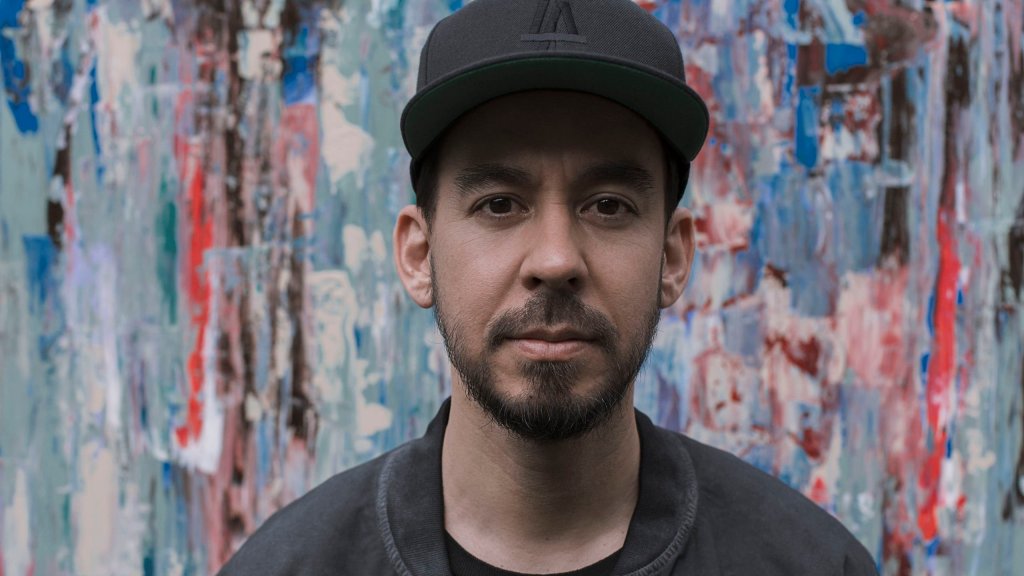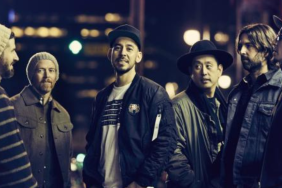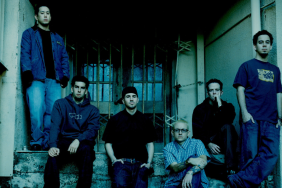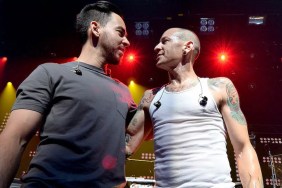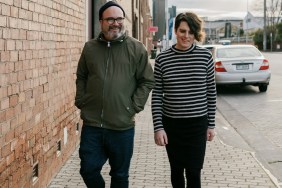Mike Shinoda doesn’t know what’s coming next. But how could he? There’s little about this artist’s career that’s been given to anticipation. Who amongst us could have pegged that the 2000 debut of a group of Californian outsiders would dominate the popular consciousness so completely? Or that Hybrid Theory would not only go on to become one of the highest selling records of the 21st century, but that it also would take the group Mike Shindoa help found to a whole other level? Or that their second album and many more besides would continue to consolidate this success? Or that this band, for all their passion, would come to mean even more to the fans themselves? No. How could he?
But even such formidable success couldn’t ensure security. Shinoda’s co-vocalist Chester Bennington took his own life on July 20 last year. It’s left Linkin Park in a state of flux.
But time and time again Shinoda has made clear that the past is something he has little time for. His focus is on the present, no apologies. As he puts it, he’s kind of just “riding the wave”. But mellow metaphor belays a deeper truth. Shinoda possess a sharp instinct for navigating the unknown. It’s something that’s served him well.
None of this is to suggest the loss of Bennington has gone unmourned. His exiting was deeply felt. Not least of all by Shinoda. Over the past year Mike has slowly found his way out of the devastating fallout. What’s more, he’s been documenting the experience piece by piece. It’s come together in the form of a kind of musical diary. A roughly chronological cycle of songs capturing what he’s been through.
This new record, Post Traumatic, does little to edit Mike Shinoda’s brooding moments. It arrives darkly confessional, heart laid bare. Solitary and just downright direct, this album is potent as anything that’s come from the artist’s past.
But it’s more than emotional flagellation. Shinoda has used this music to take back agency. It’s been therapeutic, helping him through this difficult period. Perhaps there’s something other listeners can take from these flashes of unmatched vulnerability too. For those who’ve tasted Linkin at their heaviest and most tattered edge, it’s sure to please.
But returning to what the future holds. There’s talk of working with other vocalists. Shinoda’s still in touch with Linkin Park of course but these aforementioned collaborations are strictly in relation to his solo work. Shinoda is not about to make promises he can’t keep.
MF: ‘Nothing Makes Sense Anymore’. What was running through your head when you were putting those lyrics down?
Mike Shinoda: Well you know in beginning I was just trying to get into the studio, get back into the habit of writing and not being scared to go into the studio. I had associated the studio with everything we had done with the band and everything we had done with Chester.
At a certain point, it was just very therapeutic to go in, write out and to make stuff. There were moments that were very reflective and meditative. So that helped a lot. I’d actually suggest that to anyone who is going through anything difficult or complicated. It doesn’t have to be recording an album, it could be doodling or drawing or painting. You know playing an instrument.
Art therapy for me has been a real thing. A very helpful thing. As I went, in the beginning – the album is laid out sorta chronologically. Not exactly but the earliest songs on the album are the darkest and then it slowly walks its way out of that.
MF: Why is it do you think so many creative minds, musicians especially, tend to accelerate rather than retreat when entering into difficult periods?
MS: Hmmm. I don’t think that’s true to artists. I think that it’s subjective, obviously. I have a lot of friends who are artists who don’t deal well with very traumatic or stressful situations. Speaking personally though I have always gone to art whenever I’m dealing with something complicated or difficult. As I’ve said there’s something meditative about it.
For me it engages both the creative and analytical part of my brain. If I’m writing a song about the things that are going on, I’m able to start sorting through the issues. For example, when I was getting started with ‘Over Again’, one of the earlier songs on the record, I wrote and recorded the first verse on the day of our Hollywood Bowl show for Chester and I wrote as recorded the second verse on the day after. And what I realised when I was doing it was that this thing that was happening in my life was a really unique event. They were unique thoughts that I was having. Very hard and heavy sometimes. I wanted to do my best to just capture them in a kind of musical diary.
So I did! And for the most part some of that stuff I said I figured, maybe it was too much. Maybe it was too personal, just weird or scary and I’d be able to remove it later if I didn’t feel too comfortable with it. But at the end of the day I kept it all because I felt like there was an honesty to it. I had captured the thing I had been going through accurately and I wanted the fans to know where I was at.
MF: Were their other people you were sound boarding these ideas off of while you were going through this process?
MS: I mean there were a few instances where I went to other people and asked an opinion. But far and wide it was an insulated kind of process. I think like ninety percent of it was just me sitting down, making something. And I’ve been grateful that so many people around me have been supportive. They’ve basically waited to get my guidance on every part of it.
I was imagining, at one point, kind of handing the record over the label and having them run around with like really weird salesy billboards or posters! [Laughs] Like, [putting on a cartoonish voice] “Check out the newwww music!” It could’ve been in really bad taste!
Thankfully it hasn’t been that. They’ve really asked me what I’ve thought was appropriate, what I think is the way we should release stuff. So I’m happy. I’m happy with that.
MF: A question a lot of your fans and our readers amongst them would be asking is this: Why have you decided to release this music under your own name as opposed to Fort Minor or something else?
MS: Well the main thing is emotionally the experience I’ve had is very personal and specific to me. I wanted to put my name on it because I wanted to indicate to anyone who was thinking about listening to it that it was personal. Beyond that, since I’ve never released anything just under my own name, I thought that would indicate that it sounds different and new.
It isn’t like the stuff I’ve released before. I’d say it’s not completely foreign form that but it’s not exactly that thing. Using my name felt like the right thing to do.
MF: You’re playing a string of festival dates currently. Do you have any plans of coming back down under and back here to Australia?
MS: I love, love, love Australia. I would be thrilled to visit the place for shows. The main thing for me is just balancing out where the demand is. I’m trying to get to a lot of places.
So yes, it’s really up to the fans. As we get into the album release this week and beyond, if the fans want me to come play then all they have to do is let that be known. I’d love to come down.
MF: This year marked another milestone, which is 15 years passing since the release of Linkin’s second album Meteora. How do you look back on that period? Is it something that you think about?
MS: Honestly, I don’t think about it a lot. Because it’s all part of one story, you know? It started off with an album, Hybrid Theory, which I always looked at as a business card, like a calling card. “Hey nice to meet you this is what I do.” The second album was more to just kind of back that up. To say that it wasn’t just a one-off, a fluke. It was like something we could do more than once.
From there we just wanted to keep exploring new things. Challenging ourselves and challenging the fans, evolving with the times. We tried a lot of different things over the years and it gave me a great background of experience in how to write a song and how to record. Different techniques and different ways of approaching – for me that’s endless. It doesn’t stop. Once you open yourself up to that it doesn’t stop with any given record.
MF: Which ties into a question about the future. Where do you see it all going next now that Post Traumatic is going out there and into the world?
MS: Um. I’m just kind of riding the wave. I don’t know what’s next. You know, I loved making this album and I’m excited about the shows coming up. What I’m starting with in terms of those shows, I’m going to be doing like a one-man show to start. Just me onstage. Then later I might start adding a few other musicians.
But I really don’t know. I might go into the studio with other friends and work on some things. I do still talk to the guys in the band, in Linkin Park. We’re still… kind of like looking at. I don’t know how to – I kind of want to say looking at what we’re going to do next but it’s more philosophical than that. It’s more big picture.
So there’s a wide range of things but I’ll tell you this: My main focus right now is getting this album out into the world. I’ve got a few more videos to shoot and I’ve got a lot of live dates to play which I’m the most excited about right now.
MF: One final question. Is there something that you feel you would still would like to achieve in your time as an artist and as a musician?
MS: Well to be honest I really love writing and recording. And other than playing the shows [solo as Mike Shinoda] I would love to work with some other artists. Everyone always asks, “Which artists?!” And that’s a wait and see sort of thing because there has to be a mutual interest. They have to be flavours that work well together.
Like you could theoretically think, “Oh that would be fun to work with that artist!” But you get in the studio and try something and it’s like, “Well I love their stuff but their thing with my thing, it doesn’t work that great.” Or we get together and we work on something and it’s not that great. The other times you get together and go, “Oh I think it’s gonna be good.” And then you get in there and it’s even better! So I’m excited about that. I’d love to try some of that as well.
–
